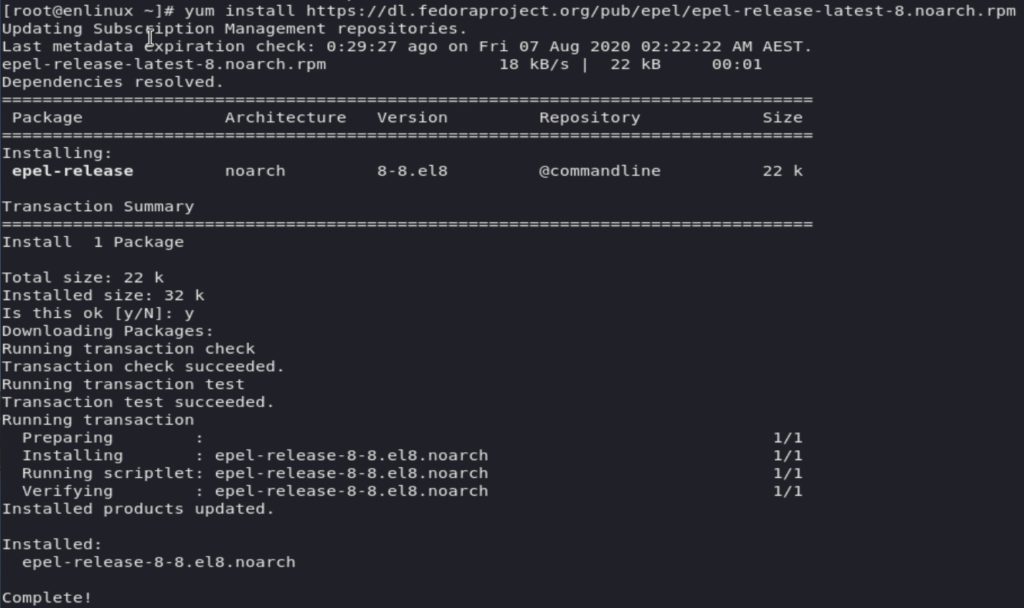How to Install EPEL Repo on Red Hat 8.x Correctly
While adding third party packages in Linux Red Hat enterprise, make sure to do it properly. This is how to install the extra repositories such as Fedora EPEL repo on an Red Hat Enterprise Linux server version 8.x. I’ve installed epel-release repot on Red Hat Enterprise to installing xrdp. XRDP allowed us to have remote desktop access to Linux machines.
By installing Fedora EPEL repos, we can easily install various third-party packages on a RHEL 8.x system. Please note that these packages are not officially supported by Red Hat, Inc, but provides many popular packages and apps.
Install EPEL repo on the RHEL 8.x
The procedure to enable EPEL repository for an RHEL 8.x server is as follows and the following instructions assumes that you are running command as root user on a RHEL 8.x system and want to use use Fedora Epel repository.
- Open the terminal.
- Install epel using the following command: yum -y install https://dl.fedoraproject.org/pub/epel/epel-release-latest-8.noarch.rpm
- Refresh repo by typing the following command: yum repolist
sudo yum install https://dl.fedoraproject.org/pub/epel/epel-release-latest-8.noarch.rpm

The EPEL repo has installed, now you have extra Packages for Enterprise Linux repository configuration.
Need to update the system using the following command.
sudo yum update
sudo subscription-manager repos --enable "codeready-builder-for-rhel-8-*-rpms"
Finally, list the new added repo using the following command.
sudo yum repolist
Done.
What is Extra Packages for Enterprise Linux (or EPEL)?
The Extra Packages for Enterprise Linux (or EPEL) is a Fedora Special Interest Group that creates, maintains, and manages a high quality set of additional packages for Enterprise Linux, including, but not limited to, Red Hat Enterprise Linux (RHEL), CentOS and Scientific Linux (SL), Oracle Linux (OL).
EPEL packages are usually based on their Fedora counterparts and will never conflict with or replace packages in the base Enterprise Linux distributions. EPEL uses much of the same infrastructure as Fedora, including buildsystem, bugzilla instance, updates manager, mirror manager and more. Red more about EEPL Repo.
